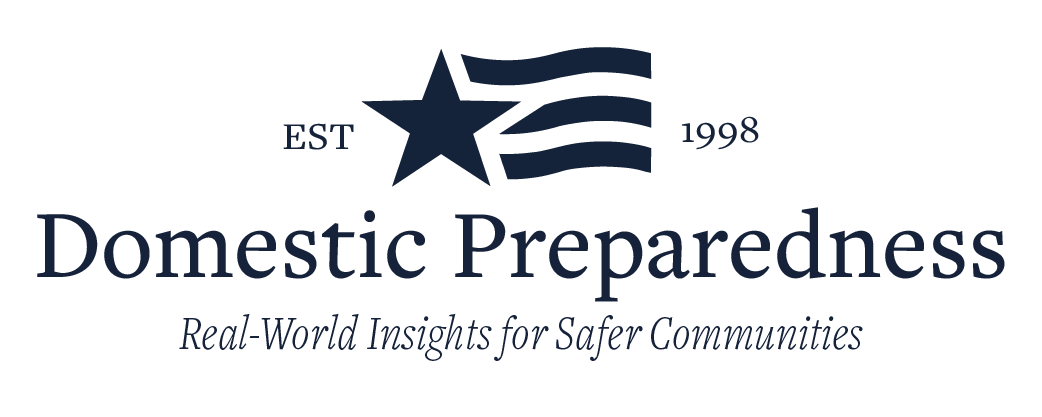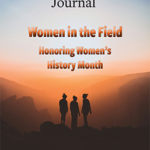
The Epitome of Failure – Part 1
William H. Austin
April 29, 2020
At about 6:15 a.m. on 8 November 2018, an iron hook holding up a 115,000-volt line broke, dropping the live wire and sparking a blaze. Thirty minutes later, what would come to be known as the Camp Fire was out of control. Officials ordered the evacuation of the nearby town of Paradise, home to 26,000 people. The town was soon burned to the ground. Within hours, the fire destroyed 13,893 homes and killed more people (85), than any other California wildfire.

Call to Action for “Unprecedented” Events
Catherine L. Feinman
April 29, 2020
News agencies often use the term “unprecedented” when referring to COVID-19 and other recent
disasters and events. Unprecedented refers to something that was not known or experienced before.
However, it is often used synonymously with the word “unexpected.” Of course, COVID-19 did not exist
before 2019, Hurricane Sandy did not exist before 2012, the U.S. was not attacked by terrorists on the
scale of 9/11 before 2001, and so on.

Triggered Collapse, Part 6: A Nationwide Call to Action
Drew Miller
April 22, 2020
Similar to pandemic preparedness, the U.S. government is not doing enough to prepare for failure of
municipal water systems when the electric grid goes down. Government programs do not address loss of law
and order or cessation of food production and delivery services. Elected and appointed officials often
downplay the number of deaths to be expected and the lack of preventative measures. They also do not
acknowledge people taking advantage of stresses on law enforcement to loot and maraud in the event of a
collapse. Swift action is needed now to mitigate potential consequences of a future triggered collapse.

Public Health Principles for a Phased Reopening During COVID-19: Guidance for Governors
Domestic Preparedness
April 21, 2020
As the COVID-19 pandemic continues to progress, most jurisdictions have implemented physical distancing measures to reduce further transmission, which have contributed to reductions in numbers of new cases. This report

Disaster Financial Management Guide
Domestic Preparedness
April 20, 2020
This guide identifies the capabilities and activities necessary to prepare and successfully implement disaster financial management while maintaining fiscal responsibility throughout response and recovery operations. The principles, concepts, and resources

Inventions Birthed by Necessity
Daniel M. Gerstein
April 15, 2020
If necessity is the mother of invention, the new coronavirus is quickly birthing a lot of innovations. Parts of U.S. society may be forever changed by this pandemic. As of 13 April 2020, the United States had over 550,000 confirmed cases and nearly 22,000 deaths, with emergency preparedness and response agencies preparing for much more to come. Combinations of social distancing, home quarantine, closure of schools and universities, and case isolation are now being extensively practiced. Creativity is being implemented each day to overcome response barriers to those at work and meet the needs of those asked to stay at home.

Reconsideration of Healthcare Providers in the Age of COVID-19
Matthew Minson
April 8, 2020
Lately, there have been a number of discussions about protecting healthcare workers, bolstering the ranks with volunteerism, and utilizing alternative care sites and providers. There have been call-ups of retired clinicians of all stripes, field promotions of health sciences students, and alternative venues for care like telemedicine. However, one group that does not seem to be as considered or fully addressed is that of home health workers. Although they are often tangentially referenced in healthcare environment conversations, this unique, variable, and incompletely accounted landscape is potentially an area of increased risk for providers, patients, public spread, and mortality.

Triggered Collapse, Part 5: Gaps in National Disaster Planning Scenarios
Drew Miller
April 8, 2020
In contrast to experts’ estimates of millions of deaths, the U.S. Department of Homeland Security
(DHS) pandemic influenza planning scenario refers to just 87,000 casualties – not much more than a bad
seasonal flu. This version of the scenario seen in public forums has planning assumptions on virus
lethality, worker absenteeism, and maintenance of law and order that are irresponsibly optimistic. When
planning for security, it is better to err on the side of worst-case scenarios. The DHS uses 15 National
Planning Scenarios. Scenario 3 is “Biological Disease Outbreak – Pandemic Influenza,” and Scenario 4 is
“Biological Attack – Pneumonic Plague.”

A Family Tradition – Old School Florida Smuggling, Chapter 16
Robert C. Hutchinson
April 3, 2020
The evolution of drug smuggling and related crimes in south Florida can be viewed through one
family and their many criminal associates. The Barker Family entered the smuggling business in the 1970s
and transitioned from marijuana to cocaine and illegal aliens by the 1990s. Through drug and alien
loads, broad conspiracies, and multiple deaths, the smuggling group was active, successful, and
notorious. This is an account of old school Florida smuggling through the long thread of one small
family. It is a bit of a history lesson and a fascinating journey back in time.

Military Use for Continued Law Enforcement During the Pandemic
Andrew R. Roszak
April 1, 2020
As the United States continues to respond to the coronavirus pandemic, police departments across the country are beginning to feel the impact of the virus on their day-to-day staffing. In New York, three officers have died, more than 900 members of the NYPD have tested positive for the coronavirus and 5,200 have called out sick. In Detroit, Michigan, two officers have died due to the coronavirus, including a 38-year old dispatcher and nearly one-fourth of the force is quarantined. In Puerto Rico, the entire police department of Rincón is quarantined. In California, law enforcement officials are exploring the option of assigning detectives, administrative personnel, and special operations personnel to street duty. However, the country has other reinforcements that should be deployed.






